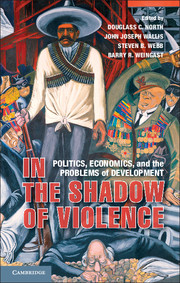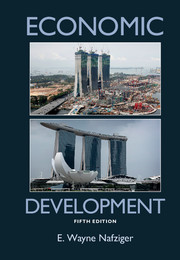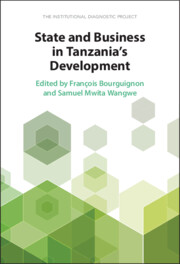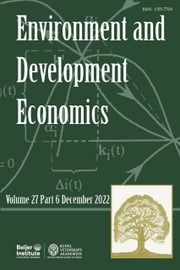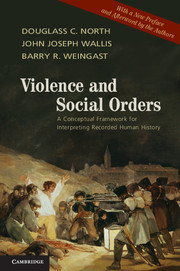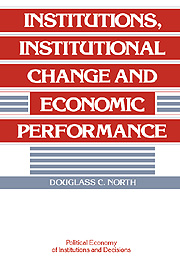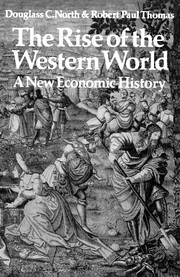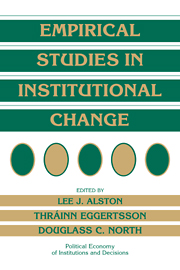In the Shadow of Violence
Politics, Economics, and the Problems of Development
$47.99 (P)
- Editors:
- Douglass C. North, Washington University, St Louis
- John Joseph Wallis, University of Maryland, College Park
- Steven B. Webb, The World Bank, Washington DC
- Barry R. Weingast, Stanford University, California
- Date Published: November 2012
- availability: Available
- format: Paperback
- isbn: 9781107684911
$
47.99
(P)
Paperback
Other available formats:
Hardback, eBook
Looking for an examination copy?
This title is not currently available for examination. However, if you are interested in the title for your course we can consider offering an examination copy. To register your interest please contact [email protected] providing details of the course you are teaching.
-
This book applies the conceptual framework of Douglass C. North, John Joseph Wallis, and Barry R. Weingast's Violence and Social Orders (Cambridge University Press, 2009) to nine developing countries. The cases show how political control of economic privileges is used to limit violence and coordinate coalitions of powerful organizations. Rather than castigating politicians and elites as simply corrupt, the case studies illustrate why development is so difficult to achieve in societies where the role of economic organizations is manipulated to provide political balance and stability. The volume develops the idea of limited-access social order as a dynamic social system in which violence is constantly a threat, and political and economic outcomes result from the need to control violence rather than promoting economic growth or political rights.
Read more- Explores new ways of looking at the process of economic development and understanding social and political violence
- Applies the framework of Violence and Social Orders written by three of the co-editors, Nobel Laureate North, J. Wallis and B. Weingast, to nine countries in the modern world
- Rich contribution of applied economics to the political and social realities of developing nations, balancing theory and empirical analysis
Reviews & endorsements
'This book is a welcomed and outstanding companion to Violence and Social Orders by North, Wallis, and Weingast. The editors apply the earlier framework to numerous countries and draw lessons from which we gain considerable insights into modern development.' Lee J. Alston, University of Colorado
See more reviews'The rigorous analyses of In the Shadow of Violence empirically demonstrate the explanatory power of the theory advanced by North, Wallis, and Weingast in Violence and Social Orders, corroborating their novel understanding of economic underdevelopment as a violence-reducing equilibrium.' Benito Arruñada, University Pompeu Fabra, Spain
'In In the Shadow of Violence, eight knowledgeable specialists address the politics and economics of eight key countries in the developing world. They explore as well what North, Wallis, and Weingast call the logic of 'limited access', wherein, it is held, political order comes at the expense of sustained economic growth. Using case materials, they evaluate this claim and teach us much about the political economy of development.' Robert Bates, Harvard University
'The essays in this provocative volume, written by analytically attuned area experts, give flesh and bones to the theoretical perspective on 'limited access orders' developed in Violence and Social Orders. The studies show how the World Bank's attempts to transform countries into 'open access orders' typically yield more violence than development. The well-acclaimed editors offer an alternative approach to development policy - working within 'limited access orders' in order to improve people's livelihoods.' David D. Laitin, Stanford University
'Through the insightful, well-documented case studies in this volume, we discover that control of violence is central to the experiences of the least and most successful developing countries of the last 50 years. The lesson from their experiences is as compelling as it is unpalatable: success - peace - may depend on allowing elites to retain large rents and supporting organizations that make it easier for elites to collude. This book is necessary reading for development professionals and political economy scholars alike.' Philip Keefer, The World Bank
'North, Wallis, and Weingast come down to earth to apply their ideas to the details of poor countries' problems and institutions. Finally we are headed in the right direction. I hope Jim Kim buys everyone at the World Bank a copy; it won't leave my desk for years.' James Robinson, Harvard University
Customer reviews
Not yet reviewed
Be the first to review
Review was not posted due to profanity
×Product details
- Date Published: November 2012
- format: Paperback
- isbn: 9781107684911
- length: 378 pages
- dimensions: 226 x 152 x 25 mm
- weight: 0.5kg
- contains: 12 b/w illus. 2 maps 42 tables
- availability: Available
Table of Contents
1. Limited access orders: an introduction to the conceptual framework Douglass C. North, John Joseph Wallis, Steven B. Webb and Barry R. Weingast
2. Bangladesh: economic growth in a vulnerable LAO Mushtaq H. Khan
3. Fragile states, elites, and rents in the Democratic Republic of Congo (DRC) Kai Kaiser and Stephanie Wolters
4. Seeking the elusive developmental knife-edge: Zambia and Mozambique – a tale of two countries Brian Levy
5. Limited access orders: the Philippines Gabriella R. Montinola
6. India's vulnerable maturity: experiences of Maharashtra and West Bengal Pallavi Roy
7. Entrenched insiders: limited access order in Mexico Alberto Diaz-Cayeros
8. From limited access to open access order in Chile, take two Patricio Navia
9. Transition from a limited access order to an open access order: the case of South Korea Jong-Sung You
10. Lessons: in the shadow of violence Douglass North, John Wallis, Steven Webb and Barry Weingast.Instructors have used or reviewed this title for the following courses
- International Conflict Resolution
Sorry, this resource is locked
Please register or sign in to request access. If you are having problems accessing these resources please email [email protected]
Register Sign in» Proceed
You are now leaving the Cambridge University Press website. Your eBook purchase and download will be completed by our partner www.ebooks.com. Please see the permission section of the www.ebooks.com catalogue page for details of the print & copy limits on our eBooks.
Continue ×Are you sure you want to delete your account?
This cannot be undone.
Thank you for your feedback which will help us improve our service.
If you requested a response, we will make sure to get back to you shortly.
×
